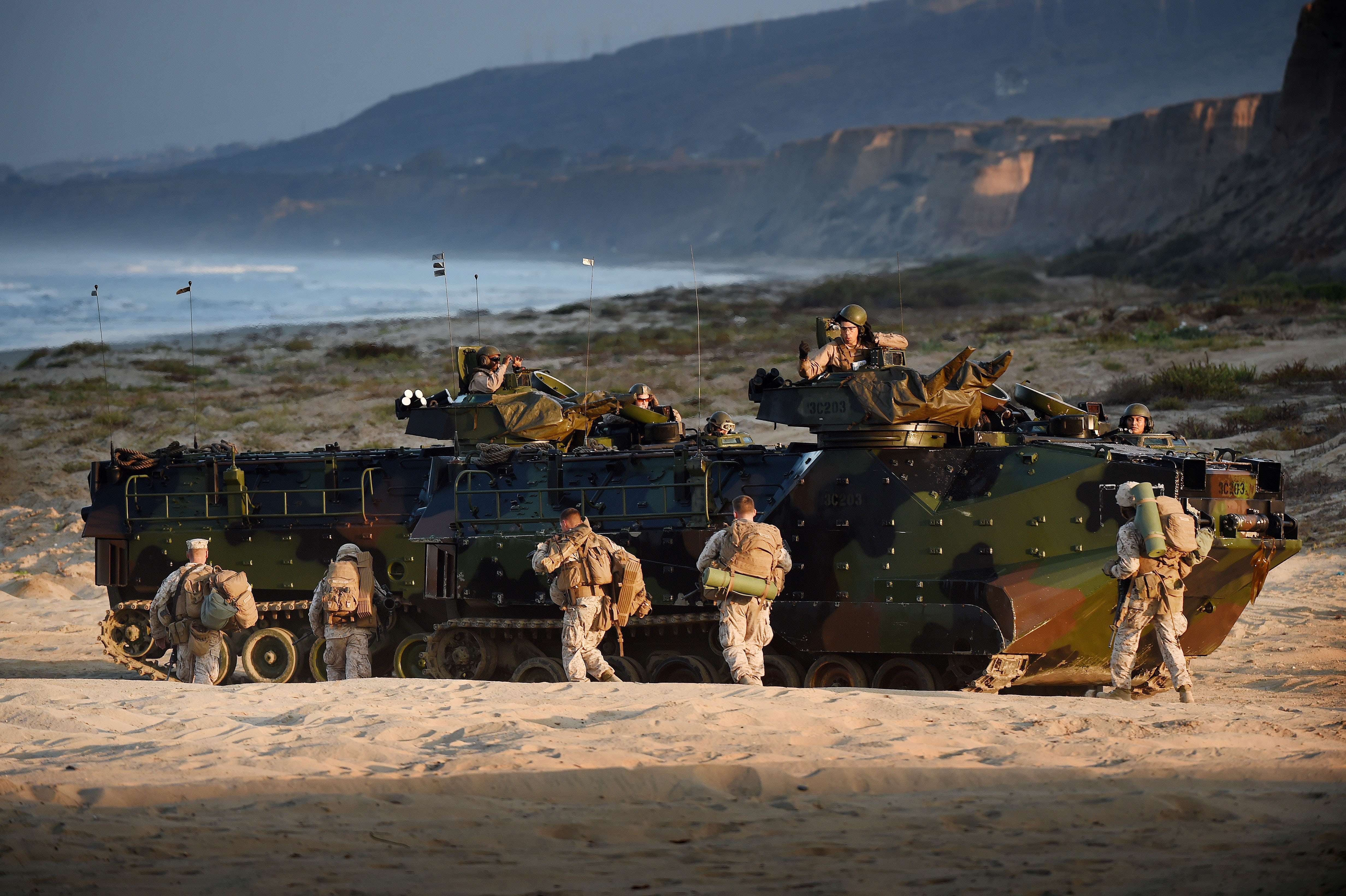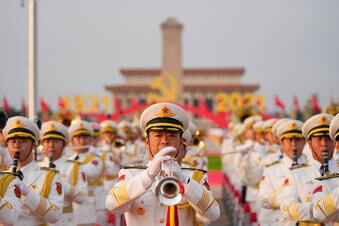China has set 2049 as its deadline for achieving superpower status. According to a Pentagon report to Congress released on Wednesday, they are making plenty of progress.
The country hit one of its big goals in 2020, according to the report, dubbed “Military and Security Developments Involving the People’s Republic of China,” in mechanizing its force.
In essence, their weapons and systems are now networked, and capable of transmitting data between systems, in order to gather information and intelligence, “which if realized would provide Beijing with more credible military options in a Taiwan contingency.”
“This includes the [People’s Liberation Army] developing the capabilities to conduct joint long-range precision strikes across domains, increasingly sophisticated space, counter-space and cyber capabilities, as well as the accelerating expansion of the PLA nuclear forces,” a senior defense official told reporters on Tuesday.
China’s military now stands at roughly 2 million personnel, according to the report, with plans to modernize capabilities to improve readiness in every domain, from land and air battle to electronic warfare and cyber.
Of those, 975,000 are in active-duty combat units. For comparison, the active-duty U.S. military stands at roughly 920,000 currently, with 2,300,000 troops overall when reserve components are included.
The PLA Navy is the largest in the world, according to the report, with 355 ships ― a magic number U.S. Navy advocates have argued for to keep the sea service competitive ― 145 of which are surface combatants.
RELATED

The PLA Air Force and Navy, which also has an aviation component, now makes up the third largest aviation force in the world, with more than 2,800 aircraft, more than 2,220 of those fighters, bombers and other tactical aircraft. The U.S., by comparison, has upwards of 13,000.
The senior defense official declined to talk about how this build-up is informing decisions about manpower or training in the U.S. military.
But tension with Taiwan, and how the U.S. might be pulled into that conflict, is a thread throughout the report.
“PLA spokespeople have stressed that the 2027 goal means that the Chinese military should comprehensively push forward the modernization of military theories, military organizational form, military personnel, and weapons and equipment,” according to the report. “If realized, this would provide Beijing with more credible military options in a Taiwan contingency.”
The question of whether China intends to invade Taiwan, which has increasingly made its desire for independence known, has become a lightning rod in U.S.-China relations.
“And they often talk about, to deter war, to compel Taiwan to abandon moves toward independence, but we’re also kind of looking ... that they’re preparing every contingency to unify by force, also, and wanting to be able to deter, to delay or otherwise, you know, to counter third-party intervention ... they’re looking at the United States or other allies and partners they think might intervene on Taiwan’s behalf,” the senior defense official said.
Officially, the U.S. supports the “One China” policy, which recognizes Taiwan as Chinese territory. But among politicians and regional experts, there has been discussion of supporting Taiwanese independence, up to and including military action.
China is the U.S.’s No. 1 military competitor, and much of the U.S. military’s own modernization is geared toward deterring ― if not engaging in ― military clashes with China, most likely to be brought on by their use of force against their neighbors.
In the case of Taiwan, it would technically be a use of force against their own people, but because of an internal push for an independent, democratic Taiwan, U.S. sympathies are naturally aligned.
So it’s a gray area, whether the U.S. would stick its neck out to protect a population that is technically Chinese. And to deter Chinese aggression, the U.S. has maintained what it calls “strategic ambiguity,” to keep the Chinese guessing about any potential response.
“Yes, we have a commitment to do that,” President Joe Biden told Anderson Cooper in October during a CNN town hall, when asked if the U.S. would defend Taiwan against a Chinese invasion.
It was a big break from official policy, one that the White House quickly tried to squash.
“There has been no shift,” White House press secretary Jen Psaki told reporters the following day. “The president was not announcing any change in our policy, nor has he made a decision to change our policy. There is no change in our policy.”
Meghann Myers is the Pentagon bureau chief at Military Times. She covers operations, policy, personnel, leadership and other issues affecting service members.
